5 start with R start with R
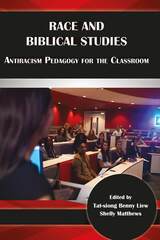
Classrooms as communities are temporary, but the racial effects can be long term.
The biblical studies classroom can be a site of personal and social transformation. To make it a space for positive change, the contributors to this volume question and reevaluate traditional teaching practices and assessment tools that foreground white, Western scholarship in order to offer practical guidance for an antiracist pedagogy. The introduction and fifteen essays provide tools for engaging issues of social context and scriptural authority, nationalism and religious identities, critical race theory, and how race, gender, and class can be addressed empathetically. Contributors Sonja Anderson, Randall C. Bailey, Eric D. Barreto, Denise Kimber Buell, Greg Carey, Haley Gabrielle, Wilda C. Gafney, Julián Andrés González Holguín, Sharon Jacob, Tat-siong Benny Liew, Francisco Lozada Jr., Shelly Matthews, Roger S. Nam, Wongi Park, Jean-Pierre Ruiz, Abraham Smith, and Kay Higuera Smith share their experience creating classrooms that are spaces that enable the production of new knowledge without reproducing a white subject of the geopolitical West.
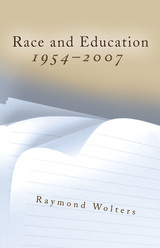
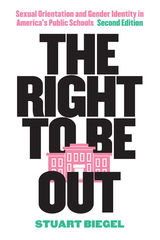
An updated edition of this measured, practical, and timely guide to LGBT rights and issues for educators and school officials
With ongoing battles over transgender rights, bullying cases in the news almost daily, and marriage equality only recently the law of the land, the information in The Right to Be Out could not be more timely or welcome. In an updated second edition that explores the altered legal terrain of LGBT rights for students and educators, Stuart Biegel offers expert guidance on the most challenging concerns in this fraught context.
Taking up the pertinent questions likely to arise regarding curriculum and pedagogy in the classroom, school sports, and transgender issues, Biegel reviews the dramatic legal developments of the past decades, identifies the principles at work, and analyzes the policy considerations that result from these changes. Central to his work is an understanding of the social, political, and personal tensions regarding the nature and extent of the right to be out, which includes both the First Amendment right to express an identity and the Fourteenth Amendment right to be treated equally. Acknowledging that LGBT issues affect people of every sexual orientation and gender identity, Biegel provides a road map of viable strategies for school officials and educators.
The Right to Be Out, informed by the latest research-based findings, advances the proposition that a safe and supportive educational environment, built upon shared values and geared toward a greater appreciation of our pluralistic society, can lead to a better world for everyone.
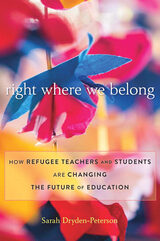
A leading expert shows how, by learning from refugee teachers and students, we can create for displaced children—and indeed all children—better schooling and brighter futures.
Half of the world’s 26 million refugees are children. Their formal education is disrupted, and their lives are too often dominated by exclusion and uncertainty about what the future holds. Even kids who have the opportunity to attend school face enormous challenges, as they struggle to integrate into unfamiliar societies and educational environments.
In Right Where We Belong, Sarah Dryden-Peterson discovers that, where governments and international agencies have been stymied, refugee teachers and students themselves are leading. From open-air classrooms in Uganda to the hallways of high schools in Maine, new visions for refugee education are emerging. Dryden-Peterson introduces us to people like Jacques—a teacher who created a school for his fellow Congolese refugees in defiance of local laws—and Hassan, a Somali refugee navigating the social world of the American teenager. Drawing on more than 600 interviews in twenty-three countries, Dryden-Peterson shows how teachers and students are experimenting with flexible forms of learning. Rather than adopt the unrealistic notion that all will soon return to “normal,” these schools embrace unfamiliarity, develop students’ adaptiveness, and demonstrate how children, teachers, and community members can build supportive relationships across lines of difference.
It turns out that policymakers, activists, and educators have a lot to learn from displaced children and teachers. Their stories point the way to better futures for refugee students and inspire us to reimagine education broadly, so that children everywhere are better prepared to thrive in a diverse and unpredictable world.
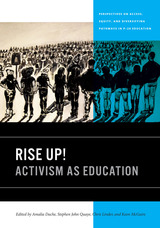
READERS
Browse our collection.
PUBLISHERS
See BiblioVault's publisher services.
STUDENT SERVICES
Files for college accessibility offices.
UChicago Accessibility Resources
home | accessibility | search | about | contact us
BiblioVault ® 2001 - 2024
The University of Chicago Press









